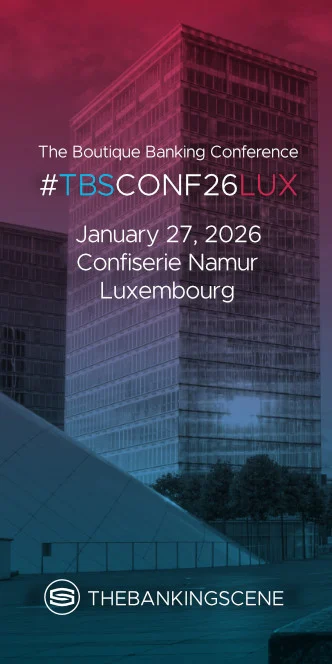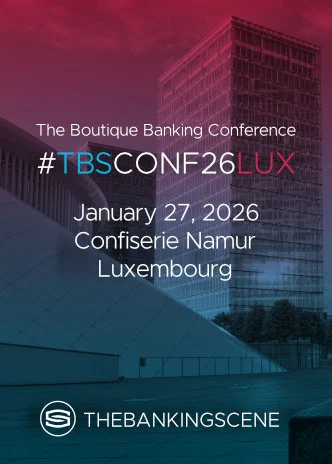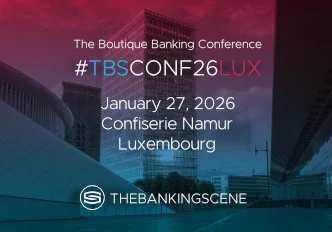
Insights & Opinions
About the metastorm that is currently raging over banking and society as a whole
Sun, 15 Mar 2020
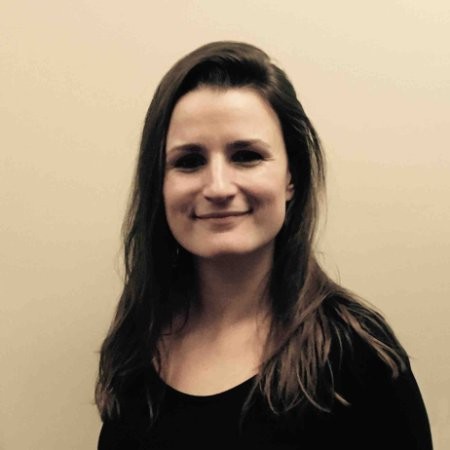

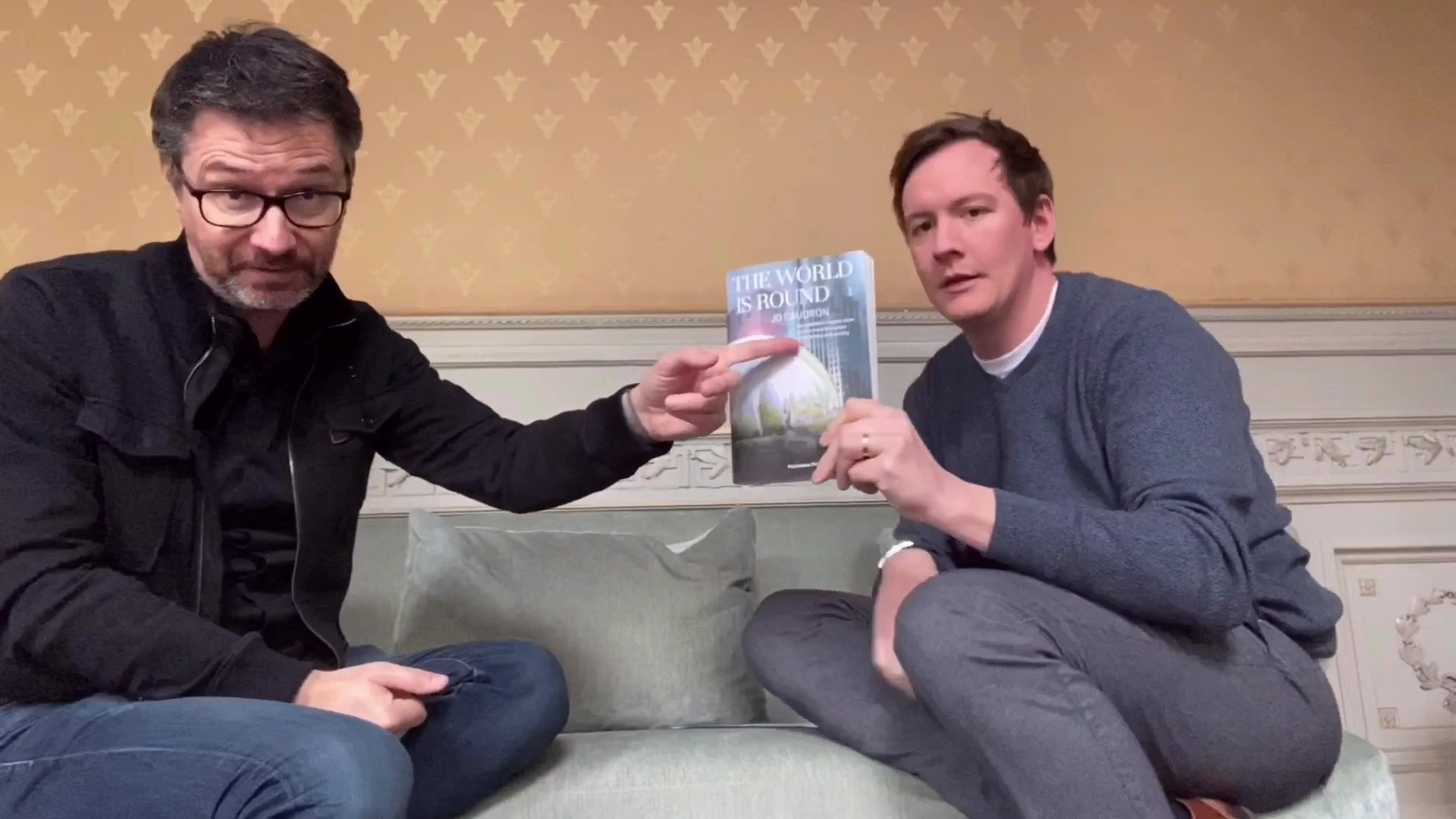
Last week, on March 10, right before Belgium got into a state of emergency, I spoke to Jo Caudron, Founding Partner of Scopernia, Futurist and the creator of the very first digital agency in Belgium, now 25 years ago.
He recently wrote a book, which is now available in English as well, and nominated as Management Book of the Year in the Netherlands. The book investigates the Metastorm that our society is currently in and how this is creating the right circumstances for a possible bright future by 2030.
He was one of the speaker at The Banking Scene 2020 Amsterdam, which unfortunately had to be replaced
With Corona being everywhere, his vision looks more actual than ever before.
Here you can find the video (transcript below):
Jo, you are pioneer in internet digitization, following up the internet already since 1994 — when I was only 10 years old. How would you evaluate the efforts of banks related to digitization? Are they doing a good job today?
Jo: “I think most banks do realize that the essence of what they are and what they do is changing and I think it is recent. This is something we have been seeing in the last 2–3–4–5 years at the most.
I’m in the business for 25 years. Before these 5 years, all that banks did was to make their business more digital. They did not consider the possibility of the fact that the essence of their business could change. Today they are faced with changes, because of fintechs and Bigtech providing payment solutions or loans, … all these kind of things.
We know it’s a reality now.
Banks know that digital is not just there to make the bank more efficient. It can also allow others to create new business models, new business logic for which the incumbent banks not necessarily have or had the proper answer. That being said, it’s not because they know it, that they can act upon that.
I’m afraid that most banks, within their vision and strategy, they probably have seen the light. but in their execution, most of them are still old school traditional banks.”
Would you agree that if I say that banks that are currently looking to do digital missed the essence of going digital? Because digitization is just a means to an end, and what does it help if you’re looking at the right means if you don’t know what you’re heading towards?
Jo: “Well, I think it’s all a matter of perspective and one of the images that I have started to use, a question that I ask a company is: what kind of company are you? Are you a ground floor company? Are you a third-floor company? Or are you a fifth-floor company?
And with that I mean, traditionally companies looked at their landscape and competitors from a ground floor perspective: I saw you, you saw me, I saw what you did, so I copied you, you are my competitors and you are thriving me, … which is for most retailers, banks and others still the case.
So if one retailer does something, for example, store decoration, the others will copy that. If one bank starts to introduce a financial service or PSD2 solutions, others will copy. That’s the ground floor. I mean, this has helped us for decades, even for centuries to define the course and steer in an industry.
Over the last decade or so, the digital players came along. And to see what Apple, what Amazon, or the fintechs, or the others were doing, you had to raise your perspective. It was no longer enough to just see the other banks, you had to step up a bit higher and see: well, that’s interesting: Amazon is giving loans to their merchants. What would that mean for us, is that going to impact us? Apple and the others are providing solutions for payments, …”
And we also have to ask: what does it mean for them? Because it’s not just: we’re losing revenues, it’s also: where are they seeing the low hanging fruit?
Jo: “Yes, and the question of why do they do that? Because in a lot of cases, for instance, Amazon, most of the money is not coming from their retail activities. Why are they messing up the entire retail landscape?
It’s coming from all the different kind of revenue streams, such as data monetization, advertising, the cloud, … everything they have. So it’s the same here: what is the impact on us? But also: why are they doing that?
Because if Amazon gives loans to the merchants, the kinds of insights this gives you as a platform player, that allows merchants to sell, basically you can give these loans for free. You don’t need the money from the loans, what you need is the insights from how the merchant functions.”
I would argue that one of the few contexts where you can, without any abuse of the word, talk about ecosystem system thinking, because what Amazon is doing is not just creating a revenue stream out of merchants, but also making these merchants bigger, to help Amazon on the long term as well.
Jo: “Well, and eventually, it’s all about Amazon of course. You can’t do it without the others, so indeed, it is an ecosystem that functions, like the Apple ecosystem and some others, but you only have a limited list of real-world ecosystems that generate a lot of money.
So that was the third-floor perspective: you see the digital players.
The fifth floor is: if you raise your perspective, even more, you start to see how society is changing. Imagine that in a decade from now, a lot of cars are no longer in personal ownership of in a leasing format, on an individual level, owned by a person, but are part of fleets, operators that offer mobility solutions.
For banks, for instance, this will entirely change the game of retail banking, for which one of their three components of existing is giving loans and insurances for cars. Just to illustrate that it’s no longer enough to look at what your peer banks are doing, we still do that, that’s fine, we have to do that.
You add the digital dimension — but that’s just copying digital things. And also seeing that amazon is providing their business models, that they are doing things for different reasons. And yet, even that is not enough. If you raise your perspective a little bit more, you see that society is changing and that your transformation is more than just becoming digital. And that digital is an instrument — or to speed up your competitors, or to help you establish your transformation. And that is what most banks do not do.”
And that brings us to the book! Since two weeks, there is an English version. It’s also nominated as Management Book of the Year in the Netherlands! It talks about the Metastorm in society that is currently changing the way we need to think about mobility, living, work, … And in today’s context, it seems pretty actual and quite visionary. Could perhaps explain a little but what this Metastorm is all about?
Jo: “The concept of the Metastorm is the fact that currently as we speak we are facing huge changes in society that most people … I mean, they know it’s happening, because they feel some signs in their personal life or some elements that we talk about in the media. But what we don’t do, it connecting them.
And the perfect storms are work, work is changing, that has to do with the emergence of artificial intelligence, flexible jobs, … there are a lot of other things that are happening right now and that will impact in the next 5 to 10 years what work is about.
The second thing is the physical space: where everything happens. For the last 75 years, after the Second World War, in the West, we have created what I called in the book “linear living”, meaning that we don’t live where we work, we don’t work where we live. And our kids go to school in yet another place, and our shopping is yet in another location.
Why? Because the best schools where there, the best living is over here, and the best retailers are there, and my job is yet somewhere else. That was fine because we had cars, and we had mobility, and we had everything that facilitates us to do the best things in the best places and then we connected with cars.
Now, we in society that this is coming to a standstill. People are saying we can’t continue like that, it’s a disaster for the climate, for our sustainability objective, the way we live and so on and so on. So both this AI thing and work and flexibility puts stress on society, it stresses us: what would be the future? We don’t know.
The same applies to the physical space: do we have to stop building houses everywhere and do we have to regroup people in city centres? Again, this creates a lot of questions, a lot of negativity, a lot of stress.
Then the last one, that everyone can already experience in their personal life is mobility: we are stuck in traffic every day, we can’t get to city centres anymore with diesel cars, and so on. So this is something that people literally feel today, and yet again, in the next decade or so, this model will tilt.
If you just look at work, that a lot of hassle, a lot of challenges: headache. If you look at where do have to organise ourselves: again, headache. Mobility is killing us and we have to rebuild the model: headache. If you connect them, you see that they are intertwined.
You see that if people, and we have a group of new entrants in the employer market, they say well, I’m not going to commute every day. I don’t want a car for that, I want a job close to where I live.
Through technology, and with their mindset, and with the culture change for corporate for instance that allows that. For the first time, it becomes possible. And then you see that cities, for instance, they are organizing work-living combinations, in a way that you can live in a very fancy or cool neighbourhood, and you do no longer need a car or something else to facilitate.
Like in Paris it was announced I think 2 weeks ago, that one of their objectives is that everyone in Paris should be able to everything they want in their lives in 15 by bike, by foot, by e-scooter or whatever. That’s their objective.
This philosophy, actually instead of only seeing the headaches, you can see the opportunities. And you see that if a group of people no longer needs a car because they can work where they live, you are starting to solve the mobility problem. Because you have to ban cars from the city centre to for the liveability, but you don’t have to ban them because people don’t buy them in the first place anymore, because they buy an apartment where they can also work in the neighbourhood.
Once you start changing that, you get an optimistic world view, instead of something like reactions like oh no, everything is changing and it was already difficult with the digital transformation and now this is coming on top of that … It’s all part of the same solution.”
Now with corona, all this seems to be concentrated in just a few weeks. Do you see that this whole evolution will be accelerating the process?
Jo: “I think so.”
Would you review the chapter in the book giving an outlook on 2030? Will it be sooner?
Jo: “No, it will not be sooner, because in the book I describe this future in a decade from now because it’s still close enough for us to believe in it, but also far enough to give us some time. A lot of things that I describe in the book will not happen in 2030 but will happen in 2023, and others will happen in 2040, you don’t know. It’s a pattern.
What I do believe is that we are showing to the world now how vulnerable we are in this global model and the dependencies between everything. We also show how weak we are that we cannot survive in a smaller community. I mean today (March 10) we had the news that Italy is in complete lockdown, well 50 years ago this country could have provided everything for themselves, today they can’t anymore.
In this philosophy of the world is round it is actually finding this middle ground between still staying global citizens, connecting to everything that we have available in the world, but doing more things locally, this is not just about I can work where I live, but we see technology that provides us for food production nearby the consumption.
We see the production of stuff, 3D manufacturing, robotics, … allows us within a decade a lot of things that we now have in mass-production models somewhere far away in the far east in China, we can locally produce at a fair cost with sustainability objectives.
My vision is that, what Corona is showing us now, and if we adapt properly in 6 to 12 months, this will also help us in achieving the sustainability goals which will put similar pressure on us, on the long term. So today we are in an instant crisis, but everything we need to change will have to change anyway in the next decade because of sustainability.”
Aside from sustainability, we also have a political factor because we are too dependent on the Chinese economy.
Jo: “Yes, which is a geopolitical situation.”
In your book you talk about the cost that is lower due to automation, you talk about sustainability, and those are very valuable arguments, but today we also see that we need to relocate certain elements to become less dependent. So for the global economy, it brought us a lot of opportunities, a lot of wealth, but now we are also faced with negative effects to some extent.
Jo: “Yes, it’s always a pendulum, and the pendulum wants the last 30 years entirely in the direction of globalization, so now we have to go back, but we can’t go back completely to nationalized solutions.
I deliberately did not write about these things because I do not want people to hijack this book for political purposes. That’s not my objective. The reality, the future has to be somewhere in the middle.
Being global as a human being, as enterprises, as investors, but still being local in our ability to execute, in our abilities to be human beings and to create local ecosystems and local economies, without going back to a century ago because that would be a very bad thing to happen.
If Corona would actually push us back into smaller communities, without connection to the outside world, that would mean going back to the middle-ages. We should avoid that at all cost.”
A few months ago, before we had corona, we had the great news that Europe is investing in the Green Deal. Do you see that as a starting point of Europe becoming a global player again with the unique competitive advantage to position itself in the global economy, or do we need more to realize that?
Jo: “We absolutely need more to realize that. It’s not because Europe announces a trillion project, that’s already good, if they have the money, that’s fine, we need it, but we need the mentality on all levels.
What I described in the book is that a lot of the changes on the level on how we organize ourselves on the local economy, and different forms of living, work combinations and mobility, it’s something in which local governments have a lot of power, we need the insights and we need the strategy on a corporate level, companies have to buy into the model, citizens and employees have to buy into the model, … so there’s much more to be done then just a green deal.
Of course, the green deal is already such a powerful instrument. What we see now is most of our large corporate customer they all say: well, there’s something new on the horizon, we need these sustainable elements as part of our operations, as part of our future thinking, of our business model design, so that’s also an element.
Just Europe waiving with a lot of billions, that’s fine, but not enough. It needs to become real, a part of people, organizations, society, governance, … so it has to be supported by everyone in the game.”
Including banks.
Jo: “Indeed, because banks are the backbone of society from a financial perspective.”
In your book at the end, you talk about the future for banks in 2030 and there will be a platform process. I hope that’s not the only way that banks can play a role. You saw them more as an investor in the platforms rather than …
Jo: “In the book, I kept it limited, because I have to describe some scenario’s, but I can’t describe them all. This is now exactly the challenge our banks are facing: can you try to invent for yourself this future vision and the role for yourself in that future?
What I describe is: if people live differently, and we evolve more to cooperative models, I’m just not talking about co-housing than even in the housing market you don’t necessarily have a one to one relationship with ownership: now I have invested in something, and now I own it.
I can invest in shares in a platform that owns houses. Not my house I live in, but I own shares in this platform operator that actually is running all these houses and is maintaining them. That’s what I described to get the same with mobility, mobility platforms and so on.
If that would happen, it would have a serious impact on retail banks, because they give loans for houses and cars, they insure houses and cars. That would fall away, but of course, a bank is more than a retail bank. Of course of local banks are mainly retail banks and have all their activities on that side.”
I’d be more concerned about loans than insurance. Insurance will always be required, even in the renting business, you need insurance.
Jo: “Yes, but it’s no longer insuring on a one-to-one level, so meaning that the entire channel approach would be people selling … it’s more complex on one side, it’s B2B, and it’s riskier, I mean if you have a seven-year contract to insure something …
The national railroads, just saying something, that’s a huge contract, I don’t know who ensures that this is not a B2C player. If you win it, for a decade, you’re safe. If you lose it, while selling a million insurances to individual travellers or people with an individual car, I mean if some people get the contract, you still have all the others.
Of course, a bank is more than that, and what banks should look at is all of the opportunities.
Let’s take Tesla: Tesla said from the moment our cars become self-driving, we will no longer sell them — we will be the owner of the cars and we will have a fleet, we will be the operator of the car.
The thing is, the number of hundreds of billions they would need to keep all these cars in their portfolio, they don’t have that kind of money. So the only way they Uber or Tesla or whoever want to operate a car fleet tomorrow, the only way to do that is to find a partner.
If these cars will be in operation for 5 years, they will need to be financed for 5 years. Today individuals take a loan, tomorrow the platform needs to do that. This is just going to be a relationship between a platform operator and a bank, or will the bank be part of the platform? Will they invest in housing platforms themselves? Will they create these platforms? Will they create these mobility platforms?
Today if a construction company builds a site with 500 apartments, they want to sell it, they do not want to keep it for 50 years, and operate and make more profit on the long term, sustainable profit on the long term — they need to finance this for 50 years.
The entire financing game will change, and that is a B2B thing. And that is just one dimension, so once you start diving into what their future could be, think health, think longevity, and so on and so on, … there are so many opportunities, but these are completely new business models, it’s not just making your bank digital.”
All those discussions are also the reason why I asked you to speak at The Banking Scene.
Jo: “I’m looking forward to it, in September!”
